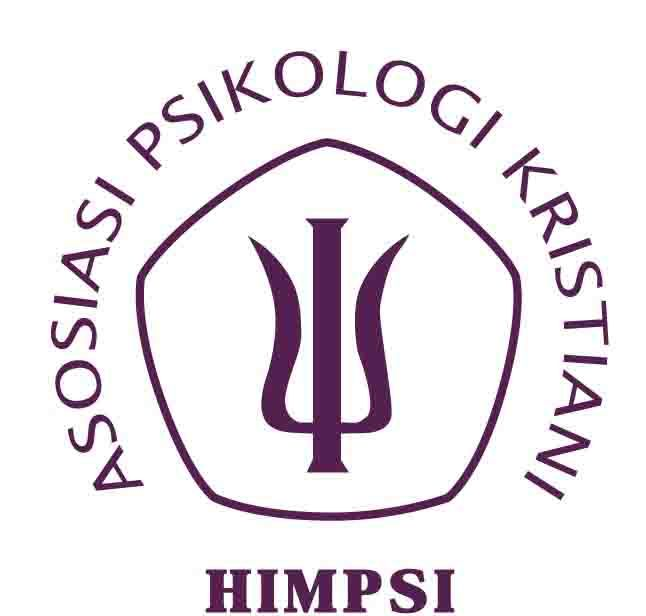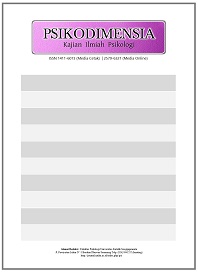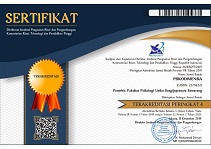Logo Therapy Conselling for Gifted Children With Post Trauma Stress Symptoms Due to Rob Disaster and Flood
Abstract
Keywords
Full Text:
PDFReferences
Barros-Bailey, M., Benshoff, J. J., & Fischer, J. (2009). Rehabilitation Counseling in the Year 2011. Rehabilitation Counseling Bulletin, 52(2), 107–113. https://doi.org/10.1177/0034355208324262
Chan, Fong, Tarvydas, V. ;, Blalock, K. ;, Strauser, D. ;, & Atkins, B. J. (2008). Unifying and Elevating Rehabilitation Counseling Through. Journal of Applied Rehabilitation Counseling Winter, 39(4), 114–120.
Dan, C., & David, R. (2008). The Relationship Between a Counselor â€TM s Education and Experience and the Time Spent on Tasks.
Fatimah, A., & Fatimah, A. (2009). Telah disetujui oleh Tim Pembimbing : Pembimbing.
Indonesia, U., Keperawatan, F. I., & Pascasarjana, P. (2009). Pengaruh Logoterapi..., Sutejo, FIK UI, 2009.
Lustig, D. C., & Strauser, D. R. (2009). Rehabilitation Counseling Graduate Students’ Preferences for Employment: Agreement Between Actual and Perceived Job Tasks of State--Federal Vocational Rehabilitation Counselors. Rehabilitation Counseling Bulletin, 52(3), 179–188. https://doi.org/10.1177/0034355208320932
Matrone, K. F., & Leahy, M. J. (2005). The relationship between vocational rehabilitation client outcomes and rehabilitation counselor multicultural counseling competencies. Rehabilitation Counseling Bulletin, 48(4), 233–244. https://doi.org/10.1177/00343552050480040401
McCarthy, A. K. (2014). Relationship between rehabilitation counselor efficacy for counseling skills and client outcomes. Journal of Rehabilitation, 80(2), 3–11.
O’Brien, M., & Graham, M. (2009). Rehabilitation Counseling in the State or Federal Program. Rehabilitation Counseling Bulletin, 52(2), 124–128. Retrieved from http://flagship.luc.edu/login?url=http://search.ebscohost.com/login.aspx?direct=true&db=ehh&AN=35648216&site=ehost-live
Patterson, J. B. (2009). Professional identity and the future of rehabilitation counseling. Rehabilitation Counseling Bulletin, 52(2), 129–132. https://doi.org/10.1177/0034355208323949
Psikologi, F., Semarang, U., Logoterapi, T., & Home, B. (2017). MENINGKATKAN PENERIMAAN ANAK BROKEN HOME Erwin Erlangga, 2(1), 1–6
Tremblay, T., Smith, J., Xie, H., & Drake, R. E. (2006). Effect of Benefits Counseling Services on Employment Outcomes for People With Psychiatric Disabilities. Psychiatric Services, 57(6), 816–821. https://doi.org/10.1176/ps.2006.57.6.816
Wagner, C. C., & Mcmahon, B. T. (2004). Rehabilitation Counseling Practice, (July 2017). https://doi.org/10.1177/00343552040470030401
DOI: https://doi.org/10.24167/psidim.v17i2.1659
Print ISSN : 1411-6073 | online ISSN : 2579-6321 View My Stats

This work is licensed under a Creative Commons Attribution 4.0 International License.




















